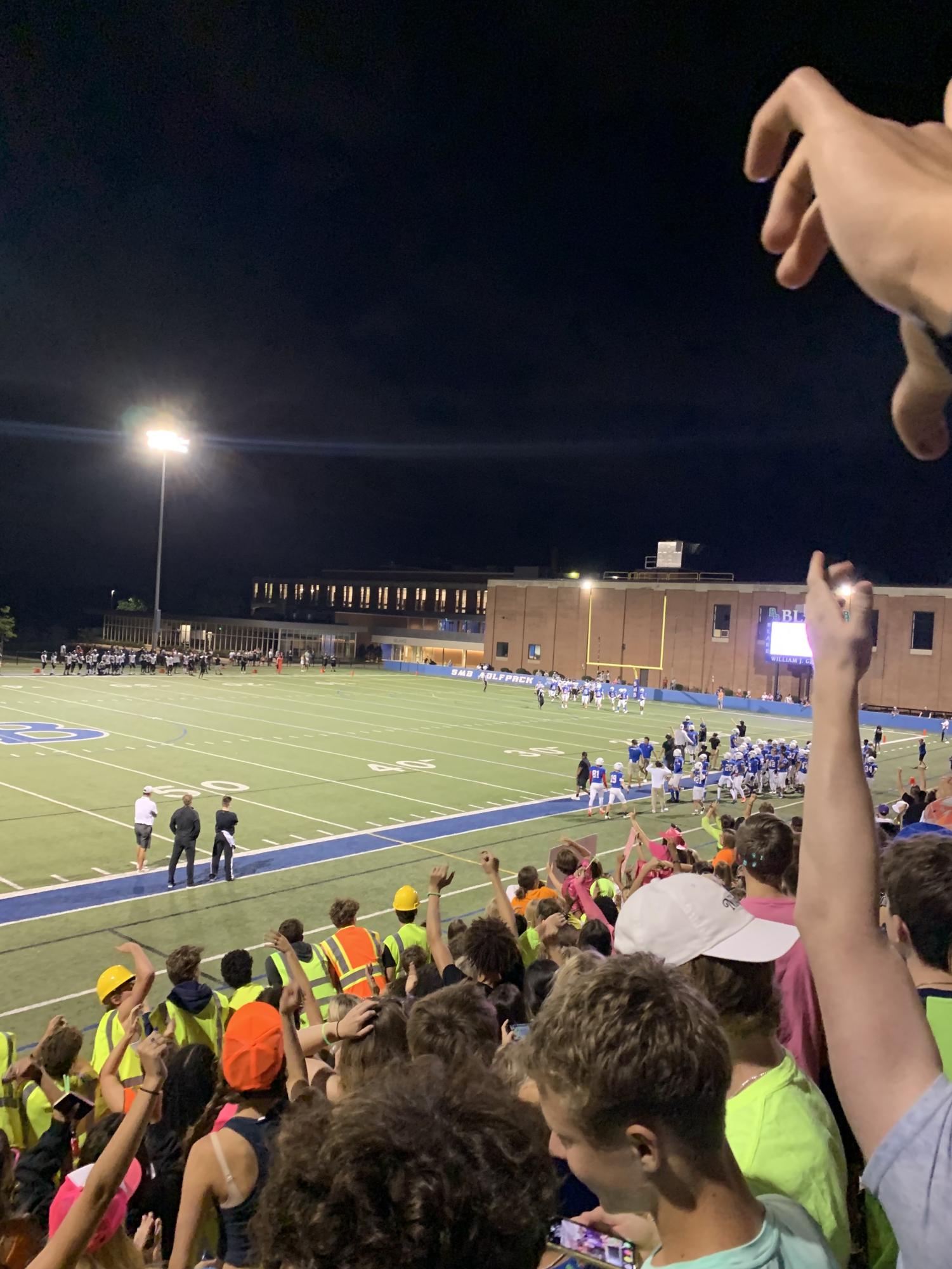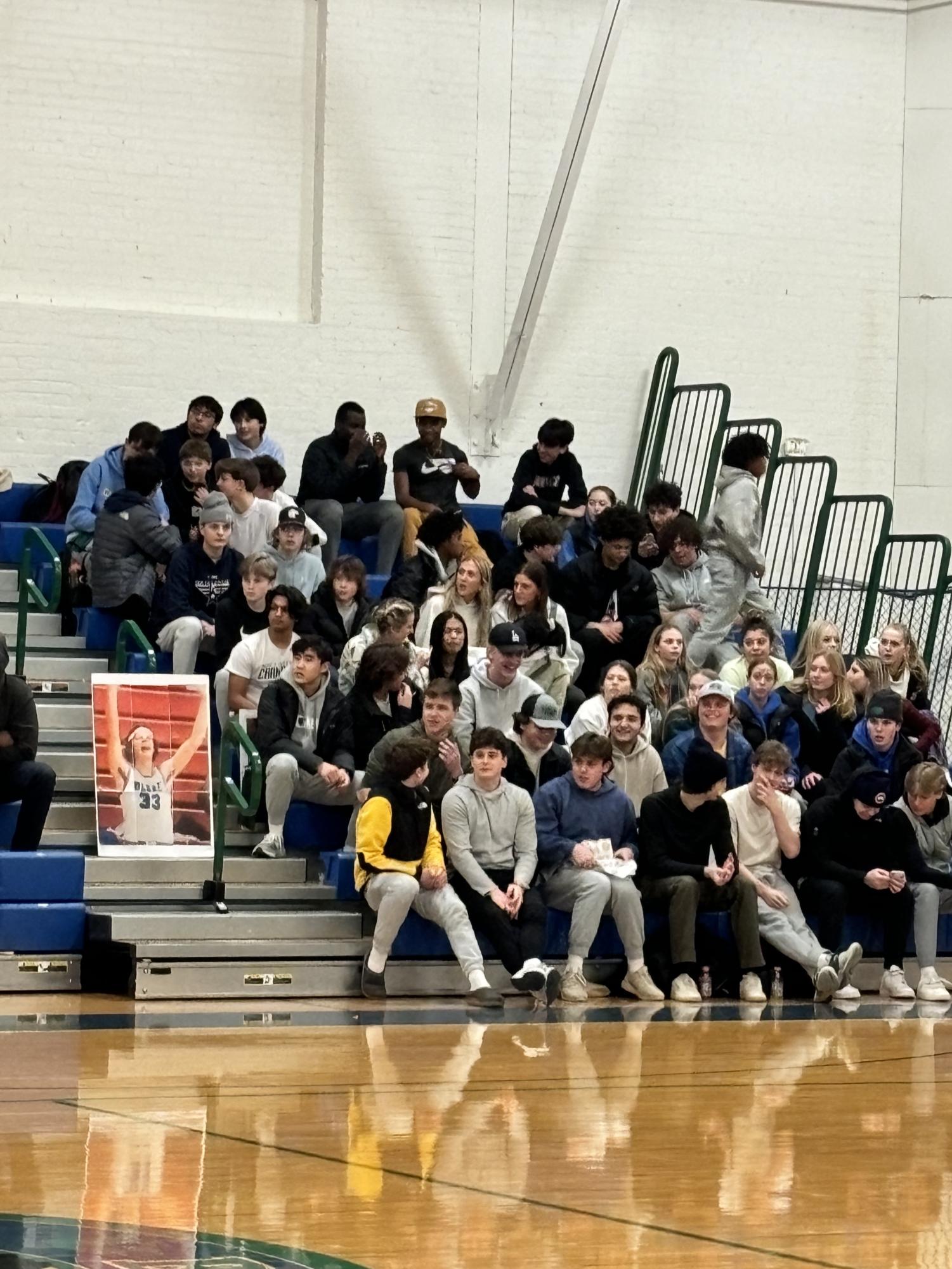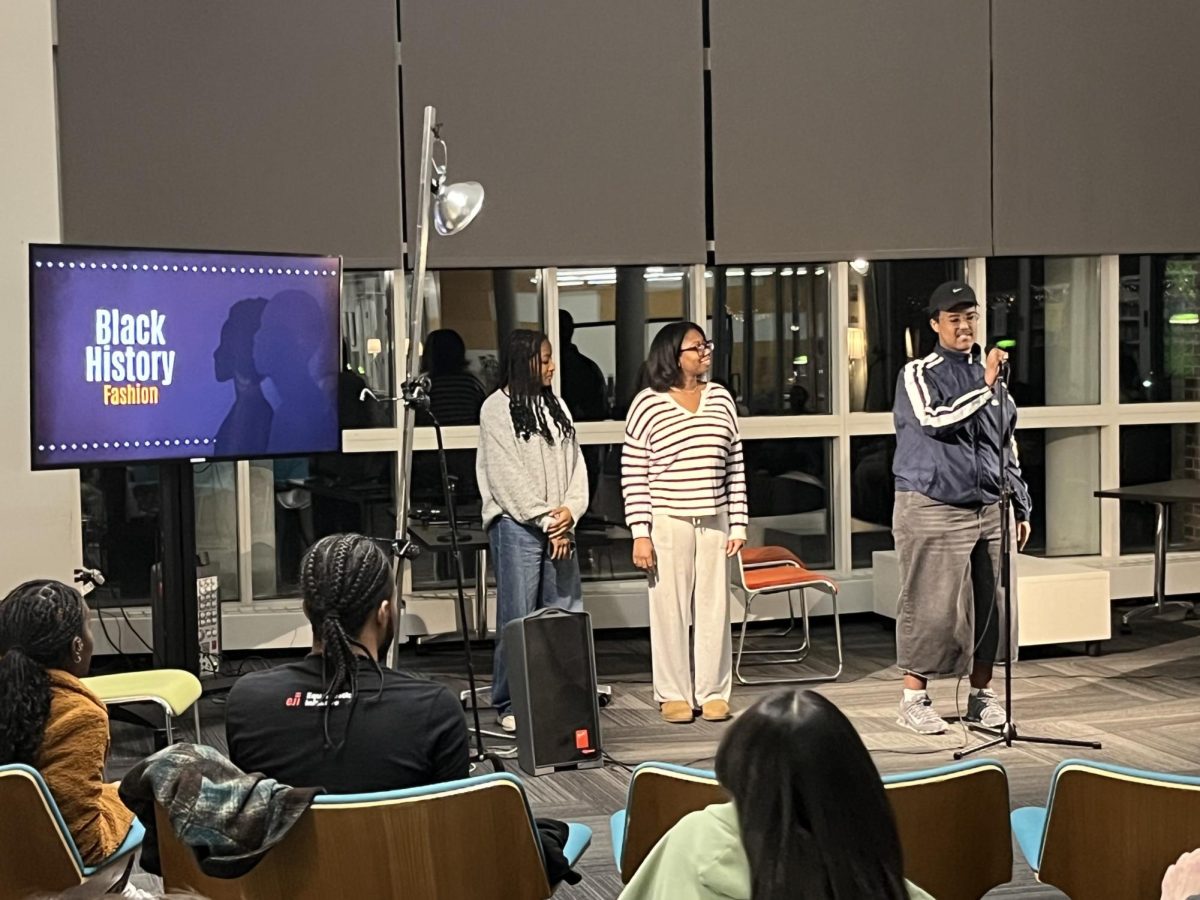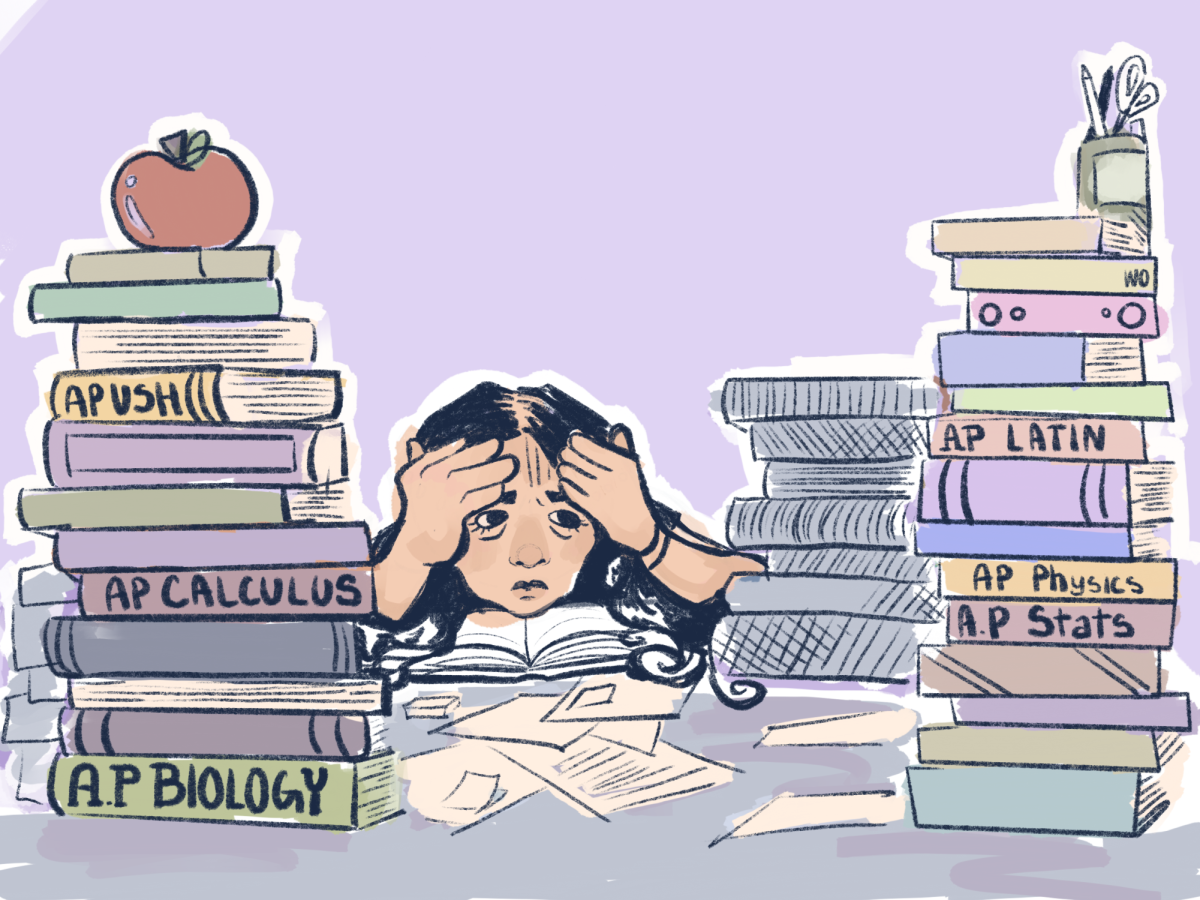

We’ve all heard the abundant assembly announcements advertising Blake events, like sports games and theater productions, but what do these events actually gain from student attendance, and how does it benefit attendees as well? Soccer captain Levi Pesky ‘25 says that “[having students at our games] definitely motivates us to play better because there’s…an atmosphere.” He continues, adding, “it makes [us] want to play for the school more.” Pesky then clarifies that “it [doesn’t] hinder [the team]” when student presence is lacking, just that “there’s a different energy when…fans [are present].” Student attendance at sports games specifically increases connection and enthusiasm among Blake’s student body, ultimately increasing school spirit.
Fuzz Aafedt ‘25,Boys Hockey player, adds to Pesky’s perspective, saying that “having a student section is such a cool experience that lots of people get to enjoy.” Aafedt comments on the two-sidedness to attending sports games, because fans “can watch sports with their friends,” while players get to “play in front of [the] whole school.” Thus, not only can attending Blake sporting events be fun for attendees, but it can also help out the team. Aafedt describes the highly anticipated Blake-Breck rivalry game: “The boys had been looking forward to [the game] all week, and it propelled [us] to our first win of the year.”
However, not all school events are well-suited for student attendance. In contrast, when asked about how student attendance affected their performance, robotics captain Lukas Stockton ‘24 comments, “it’s always nice to have people cheering you on,” but he also noted that it doesn’t have a major effect on their performance, primarily because “the robot doesn’t get any better if people are cheering it on.” Furthermore, Stockton says that “it is a really long competition” so may not be the most favorable day out for prospective audience members.
Despite this, supporting student groups and teams is crucial to developing school spirit, but it can be done in ways outside of attending events if they are not the most suitable for student attendance. Wishing your friends good luck at their events and asking about their progress and success are just a couple of ways to do this.
School spirit is a necessity for the student body to connect, subsequently enjoying more time spent together as a community. There is great potential for an emerging, energetically charged high school that can only be accomplished through the willingness to be more spirited. School spirit excites the academically drained, supports and acknowledges hardworking Blake members outside of the classroom, and fosters a greater sense of community. Spirit is a necessity, and it must be raised to improve the wellbeing of our social environment.
The prioritization of school spirit reflects the energy that the student body feels apt to give. Lauren Mohan ‘25 expresses, “I feel like school spirit gets higher during united times… Homecoming was the most school spirit filled week because it’s a thing a lot of people look forward to.” Mohan further states that the extremely college based culture of the school doesn’t allow time for school spirit in students’ lives, “[Blake is] such an academically focused school and everyone is stressed out with their work… and still maintain a social life. You have a lot to do being a student in this school, so it’s hard to be excited and motivated to go to school.”
Spirit manifests itself as the pride that students have for the school, further providing an avenue to support members of the community outside of an academic landscape. At sports games, student athletes have noticed little support from the Upper School Student Body. When asked about what athletes have noticed about school spirit, boy’s basketball player Ian Schnabel ‘25 humorously remarked that, “we notice a lot of nothing because there’s no people there.” Similarly, Omar Kaba ‘25 notes the lack of engagement from the community also as a boy’s basketball player, “Blake kinda sucks with [school spirit]. Depending on who we play there’s noticeably less people.” Kaba, however, notes that there has been some improvements in spirit this year, and that the turnout can be subject to who the opponent is. Unfortunately for Kaba and Schnabel, turnout for sports in general—other than major events like Homecoming as Mohan mentioned— feels lackluster.
Despite the community’s lack of it, spirit is something that needs to be raised to uplift athletes and the general student body alike, and to ultimately just have fun. Mohan emphasizes the necessity of having more fun and diverse activities during the middling months of the year encourages student participation, “the Sweethearts dance is a good example of having more events that are different and fun, especially during that time of year, like the winter period… second semester is really hard to get through.” An impactful and simple solution towards raising more school spirit is suggested by Kaba, “Just talking about it more.” To continue to raise discussions of encouragement for students to participate in spirited events creates an environment where events themselves are actively being circulated through the student body. By creating currently non-existent conversations surrounding spirit can lead to its prioritization. Leaders in the community can initiate exciting, new dialogue to ramp up the energy of the community. Kaba not only urges the need for action among his own team, “It’s on us to tell people about our games,” but also the effort required from the whole community, expressing that raising spirit will come from “just trying harder from all of us–from people trying to make it to games and athletes talking about our games and getting the word out.” There is a growing want for change, to move away from our current lack of camaraderie and become a closer community which is wound through support and excitement provided only through a communal sense of spirit and pride for our school. Just by simply starting a conversation of how we can improve is where we begin accomplishing the goal of a new and electrifying spirit.









